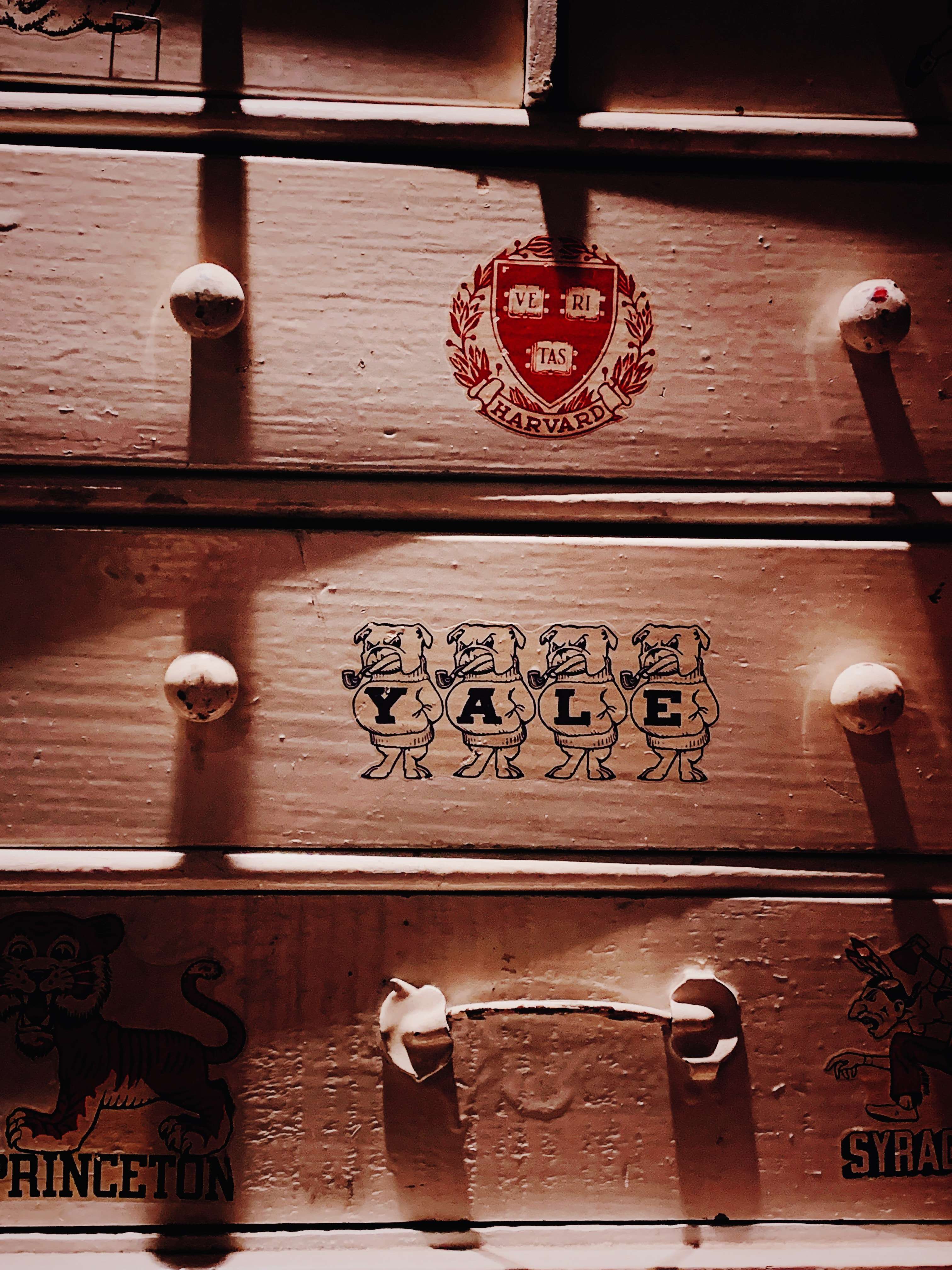Contents
Last updated July 24, 2024
Every piece we write is researched and vetted by a former admissions officer. Read about our mission to pull back the admissions curtain.
How to Use the Amherst College Common Data Set
Admissions officer reviewed by
Ben Bousquet, M.Ed
Former Vanderbilt University
Written by
Kylie Kistner, MA
Former Willamette University Admissions
Key Takeaway
The Amherst College Common Data Set is a helpful resource for your college application process.
It explicitly lays out what the Amherst College admissions officers value, which gives you the power to write an application that meets their expectations and helps them root for you in the multi-stage review process.
Let's get started.
How Amherst College Evaluates Applicants — based on CDS data
When it comes to your application, Amherst College checks out different elements—GPA, class rank, application essays, and more.
The key factors in Amherst’s process are your academic record, essays, recommendations, and your personal traits and qualities.
Note that volunteer work and work experience in particular are ranked as “important.” Across all of the Common Data Sets, schools tend to rank volunteering and working as merely “considered,” so we can tell that these two activities can be important to Amherst’s admissions officers. If you have a compelling volunteer or work history, be sure to highlight it in your application.
| Very important | Important | Considered | Not considered | |
|---|---|---|---|---|
| Rigor of Secondary Record | X | |||
| Class rank | X | |||
| Academic GPA | X | |||
| Standardized test scores | X | |||
| Application Essay | X | |||
| Recommendation(s) | X | |||
| Interview | X | |||
| Extracurricular activities | X | |||
| Talent/ability | X | |||
| Character/personal qualities | X | |||
| First generation | X | |||
| Alumni/ae relation | X | |||
| Geographical residence | X | |||
| State residency | X | |||
| Religious affiliation/commitment | X | |||
| Racial/ethnic status | X | |||
| Volunteer work | X | |||
| Work experience | X | |||
| Demonstrated interest | X |
Does Amherst track demonstrated interest?
Demonstrated interest doesn't figure into Amherst's evaluation. Since Amherst doesn’t track demonstrated interest, you don’t have to worry about engaging with the school in ways that can be tracked. Still, you should engage as much as you need to to learn about the school and have good material to use for your supplemental essays.
Does Amherst care about standardized test scores?
Amherst College does take into account standardized test scores, but they aren’t the sole factor deciding whether you will be admitted. Your main focus should be on creating a balanced application, featuring a strong academic record and dynamic extracurricular involvement—and strong standardized test scores can be part of it.
Does Amherst care about essays?
Yes! Essays are very important in the Amherst application review process. They offer the admissions officers a peek into your personality, personal traits, and fit for the school. Make sure your essays reflect your strengths, goals, and characteristics that set you apart.
What GPA do I need to get into Amherst?
Specific GPA data for Amherst is not provided, but we can glean valuable insights from the class rank of students who enrolled. A whopping 90% of these students were in the top tenth of their high school graduating class, 96% in the top quarter, and all of them in the top half.
These data suggest that high academic performance is key to getting into Amherst.
Amherst Acceptance Rate
Amherst received 14,864 applications and admitted 1,079 students.
That translates to an acceptance rate of around 7.26%.
With an acceptance rate that low, getting into Amherst is almost as hard as getting into an Ivy.
Out of those who got in, 467 students joined as first-year students.
Amherst Early Decision Acceptance Rate
Amherst provides a binding Early Decision option. The acceptance rate for ED applicants is 31.79%, with 220 out of 692 students getting in. That’s significantly higher than the Regular Decision and Early Action rate.
What's the right application option for you?
Though the Early Decision acceptance rate at Amherst is higher, bear in mind that it's still a highly competitive process, and 31.79% is still a very competitive acceptance rate.
Deciding to go the Early Decision route should be a strategic decision, considering not only these rates, but also your fit for Amherst and your chances of getting in based on your academic and extracurricular profile.
Most popular majors at Amherst
The Common Data Set doesn't directly reveal major distributions, but we can still understand the most pursued fields of study by looking at the percentage of degrees awarded in each discipline. This can guide you in determining if Amherst aligns with your academic goals and how you might tailor your application based on your intended major.
Here's a glance at the data:
| Major | Percent of Degrees Conferred |
|---|---|
| Social sciences | 22.4 |
| Mathematics and statistics | 13.7 |
| Biological/life sciences | 10.94 |
| Psychology | 8.04 |
| Computer and information sciences | 7.25 |
| Area, ethnic, and gender studies | 5.8 |
| English | 5.4 |
| Visual and performing arts | 5.27 |
| Physical sciences | 5.14 |
| Foreign languages, literatures, and linguistics | 4.48 |
This information can really shape your application strategy. For example, if you're aiming for social sciences or biological/life sciences, which are quite popular, you should make your interest in the field part of your compelling, cohesive narrative. Conversely, less popular majors, like foreign languages or visual and performing arts, could present unique opportunities for you to stand out.
What should you do with all this information?
Given Amherst's selective 7.26% acceptance rate, every part of your application needs to be up to par.
Your academic records should show that you've taken challenging courses, and your GPA should be among the highest in your class, given the weight of these factors in Amherst's admissions process. Also, your personal traits and qualities, which Amherst sees as very important, can shine through in your essays—make sure you’re doing school research to find the community traits that Amherst likes to see in students.
Showing authentic interest in the college and clearly explaining your extracurricular activities are also key. In short, strive to present a compelling, balanced applicant profile that spotlights the aspects that Amherst values most.
This can be done by pinpointing your unique "thesis" and making sure all parts of your application align with it. We call this “crafting a cohesive narrative” that resonates with the admission officers.
With the Amherst CDS data in your back pocket, you now have a better understanding of the applicant profile that admissions officers are looking for.
For more Common Data Set data and to compare admissions criteria between schools, make sure to check out the Data Room.



